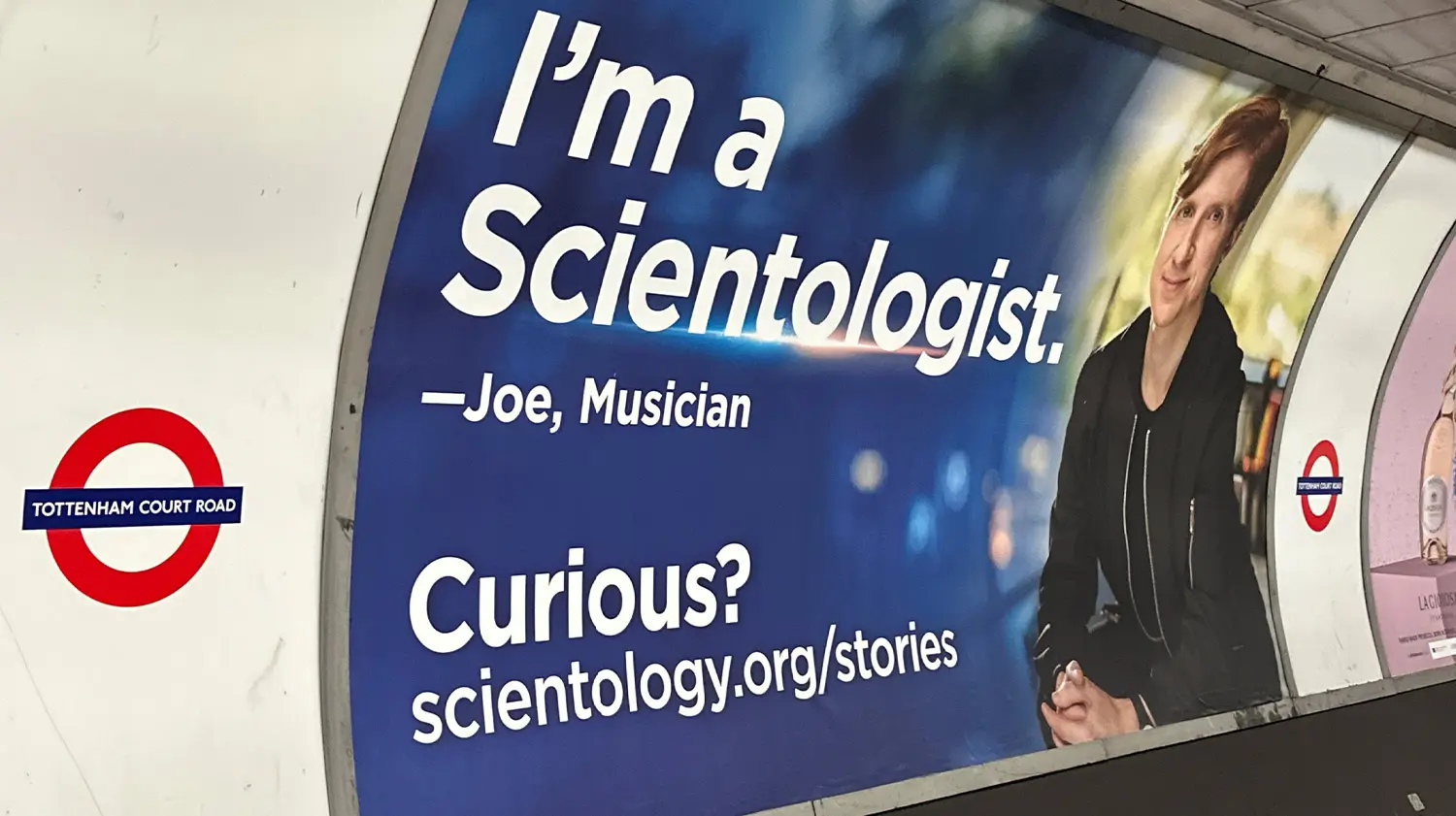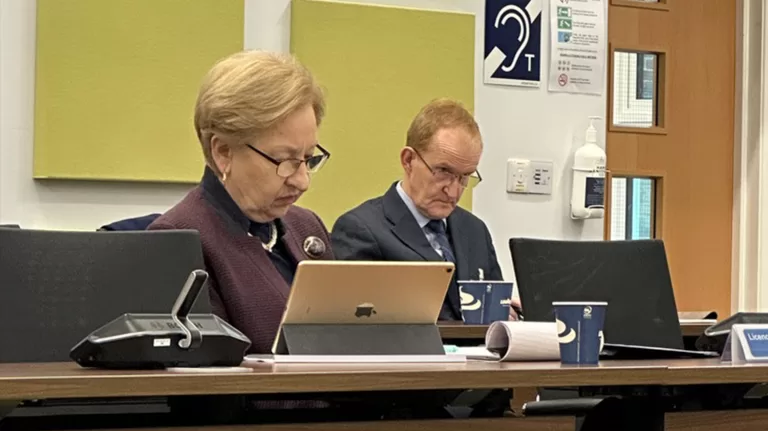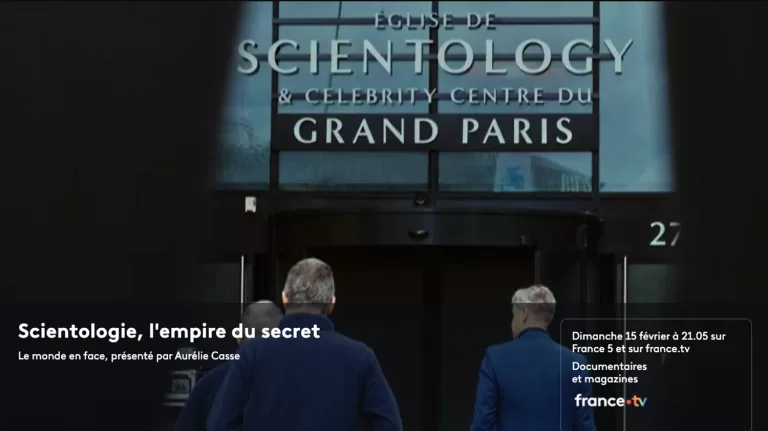Transport for London (TfL) has issued an apology for causing offence by allowing three Scientology billboards to be displayed at Tottenham Court Road Underground station, but denied that the campaign broke advertising rules.
TfL have been facing backlash in the media after cult survivors called out the ads as offensive and upsetting. On Sunday, London newspaper Metro reported one local resident complaining “TFL doesn’t allow junk food to be advertised, but this is apparently fine.”
Now, Transport for London have apologised for causing offence but the ads set to remain until the campaign finishes in February as they “do not contravene [their] advertising policy”.
In a statement, a TfL representative wrote “The adverts were reviewed by the Committee of Advertising Practice (CAP); which is the organisation responsible for writing and maintaining the Advertising Codes and is the sister organisation to the Advertising Standards Authority (ASA) which regulates advertising in the UK.”
“TfL has a rigorous Advertising Policy which extends beyond the requirements set by CAP and the ASA. Our advertising policy can be viewed here: http://content.tfl.gov.uk/tfl-advertising-policy-250219.pdf The adverts do not contravene our advertising policy. Nonetheless, I am certainly sorry for any offense caused to you personally.”
Scientology was rejected by the Charity Commission in 1999 after it ruled the organisation was not established for the public benefit.
In 1971, the government commissioned an inquiry into Scientology’s practices, with Sir John Foster, K.B.E., Q.C., M.P concluding the organisation’s practices raise serious concerns, especially with regard to the mental health of vulnerable parishioners. The findings of this inquiry have never been disputed or overturned by the government, and in 2023 the Mother of the House the Rt. Hon Diane Abbott issued a statement sharing her concerns over Scientology’s practices in the United Kingdom.
Although the UK Supreme Court ruled in 2013 that limited rooms in Scientology’s buildings are considered “places of worship” for the purposes of religious wedding ceremonies, it did not overturn an earlier 1984 High Court case in which Lord Justice Latey ruled “Scientology is both immoral and socially obnoxious. It is corrupt, sinister and dangerous” and that “it is out to capture people, especially children and impressionable young people, and indoctrinate and brainwash them so that they become the unquestioning captives and tools of the cult, withdrawn from ordinary thought, living and relationships with others”.
Protestors are due to gather outside TfL’s headquarters next week in opposition to TfL’s decision to display Scientology’s ads, demanding they are removed due to the message it sends survivors of abuse inside the organisation.










[…] Scientology Plakat wurde in einer U-Bahn in London entdeckt, Alex hat nicht nur schriftlich bei der Firma interveniert, die dieses Plakat aufgehängt hat, ein paar Tage später hat er sogar einen kleinen […]
I've made some successful complaints to the Advertising Standards Authority (ASA), and to do that you have to scrutinise their rules closely, and understand that they do play by them.
The problem here is that Scientology can play that game, too, and this is what they have done to TfL, by booking ads so vague that there I can find no grounds for complaint.
The only room I can see is in section 2.3a of the advertising policy as it has indeed caused "serious offence to reasonable members of the public on account of the product or service being advertised" i.e ex-Scientologists like yourself. Also 2.3q on the grounds that the ad, "[…] is unacceptable for some other substantial reason (which TfL will identify and explain as reasonably required)". You can provide a lot of reasons why this ad is unacceptable.
The fact that a representative of TfL has apologised, acknowledges that they know people don't like it, but TfL don't have a choice.
The same problem arose when Scientology applied for planning permission for its ideal org in Plymouth. People objected that they didn't want a "cult" in their midst. However, that's not on the list of valid objections. Very few things are (e.g. parking problems) and the CofS hired a specialised firm to preemptively deal with them.
Local politicians didn't want to grant permission, but they were stymied.
Since then, they have pulled another clever trick so that their planning permission does not expire.